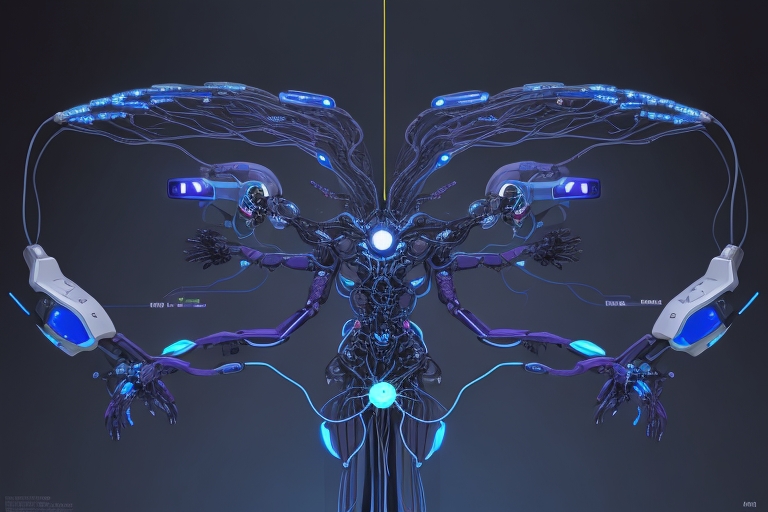Bondzai invents a groundbreaking approach to AI

- November 9, 2022
- allix
- AI Projects
Unconvinced by current approaches to artificial intelligence (AI), Alain Fanet, a serial entrepreneur since the 1990s, decided to investigate the next emerging wave of smart objects (AioT). His meeting in 2019 with the professor of applied and industrial mathematics Bijan Mohammadi, who has just developed an algorithm for deep learning will be decisive: together, they decide to use the algorithm to bring new value propositions.
“AI was built for statistical analysis but applied to operations, such as robotics, personal assistants or home automation, it is not suitable because it is not enriched by diversity but it is “averaged“, notes Alain Fanet. With Bijan, we wanted to approach AioT through offline and dataset-less learning paradigm shifts compared to the deep learning conventional.”
The human transmits his knowledge to the machine
Under the supervision of the company for the acceleration of technology transfer (SATT) AxLR, an initial maturation program will start in 2019 allowing Alain Fanet and Bijan Mohammadi to compare their vision and their respective experiences.
“Without knowing each other, we discovered a common value in thinking of AI as an extension of humans who transmit their knowledge to machines and not the other way around, explains Alain Fanet. So the opposite of the current approach, with ever more accumulated data and ever more gigantic resource requirements in order to be able to learn.”
After a period of slowdown due to the health crisis, a standard maturation program was conducted to define the value proposition. Then an investment of 1 million euros from SATT AxLR accelerated the creation of the startup Bondzai (bond for link, z for zero data and zero code, and AI) in December 2021, with today a team of six people.
Voice control
Starting from the observation that in Industry 4.0, out of 100 projects launched in AI, only three go into production and that the model is therefore not efficient compared to the reality on the ground, Bondzai focused on the market of control by the voice.
“Let’s take the example of a voice assistant: depending on the level of surrounding noise, it is difficult to hear. But if we remove these noises, we also remove the biometrics of the voice and therefore we no longer recognize who is speaking. However, our systems must perform everywhere, whatever the acoustic environment, analyzes the co-founder of Bondzai. Our algorithm is easy to implement, it learns continuously – unlike our competitors who integrate pre-existing models into their systems – and adapts to the reality on the ground.”
The card of sobriety
Davinsy, the continuous learning system, integrates Deeplomath software which has the ability to be programmed without code and fits into all types of equipment. While energy consumption is one of the main obstacles preventing the IoT from becoming fully widespread, Bondzai says it is playing the sobriety card by adapting to existing electronics, without the need for new microprocessors. Produced in beta version, the Davinsy software is evaluated by several customers, mainly equipment manufacturers manufacturing connected devices (or not) for applications in medicine, and industry but also for future robotic assistants. Davinsy is expected to be marketed in 2023. A series A fundraising should then enable Bondzai to expand internationally, primarily in Europe.
“In full expansion, the IoT will represent 27 billion connections in 2025, emphasizes Alain Fanet. So we have our role to play. We manage our growth risk and we want to partner with institutional investors who want to follow our expansion.”
Categories
- AI Education (39)
- AI in Business (65)
- AI Projects (87)
- Research (107)
- Uncategorized (5)
Other posts
- Medical Treatment in Brazil: Advanced Healthcare, Skilled Specialists, and Patient-Focused Care
- Dental Treatment in China: Modern Technology, Skilled Dentists, and Comprehensive Care for International Patients
- Plastic Surgery in China: Advanced Aesthetic Medicine Supported by Precision, Innovation, and Skilled Specialists
- Ophthalmology in China: Advanced Eye Care Guided by Innovation, Expertise, and Patient-Focused Treatment
- Finding Care, Calm, and Confidence: Why Patients Are Looking Toward Beroun in the Czech Republic
- Choosing Health, Energy, and a New Future: Exploring Gastric Bypass in Diyarbakır, Turkey
- When Facial Hair Tells Your Story: Considering a Beard Transplant in Phuket, Thailand
- When Prevention Becomes Power: Understanding Liver Cirrhosis Risk and Modern Screening Approaches in Spain
- When the Abdomen Signals Something Serious: Understanding Abdominal Aortic Aneurysm and Getting Expert Evaluation in Islamabad
- When Back Pain Becomes More Than “Just Pain”: Understanding the Need for Microdiscectomy
Newsletter
Get regular updates on data science, artificial intelligence, machine



